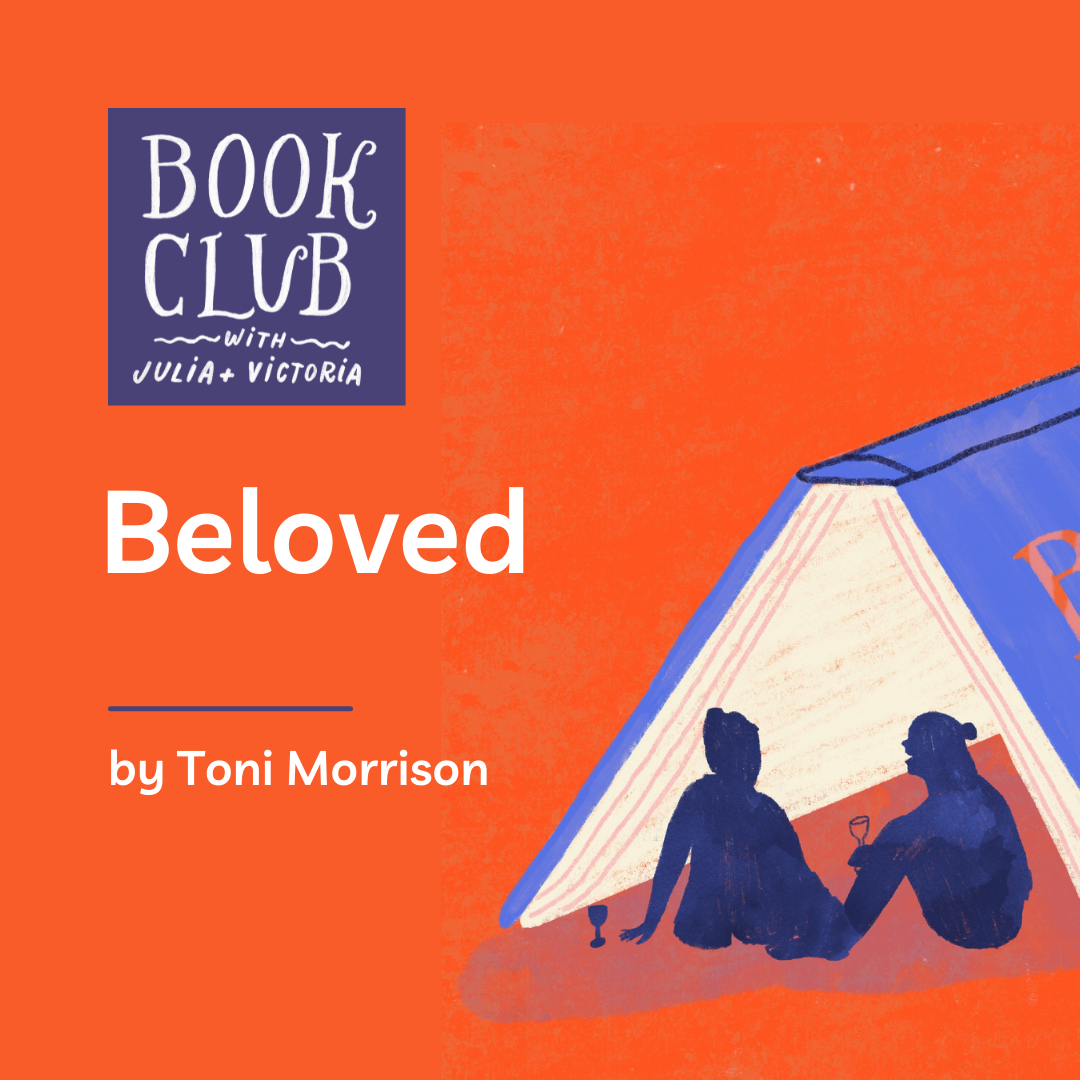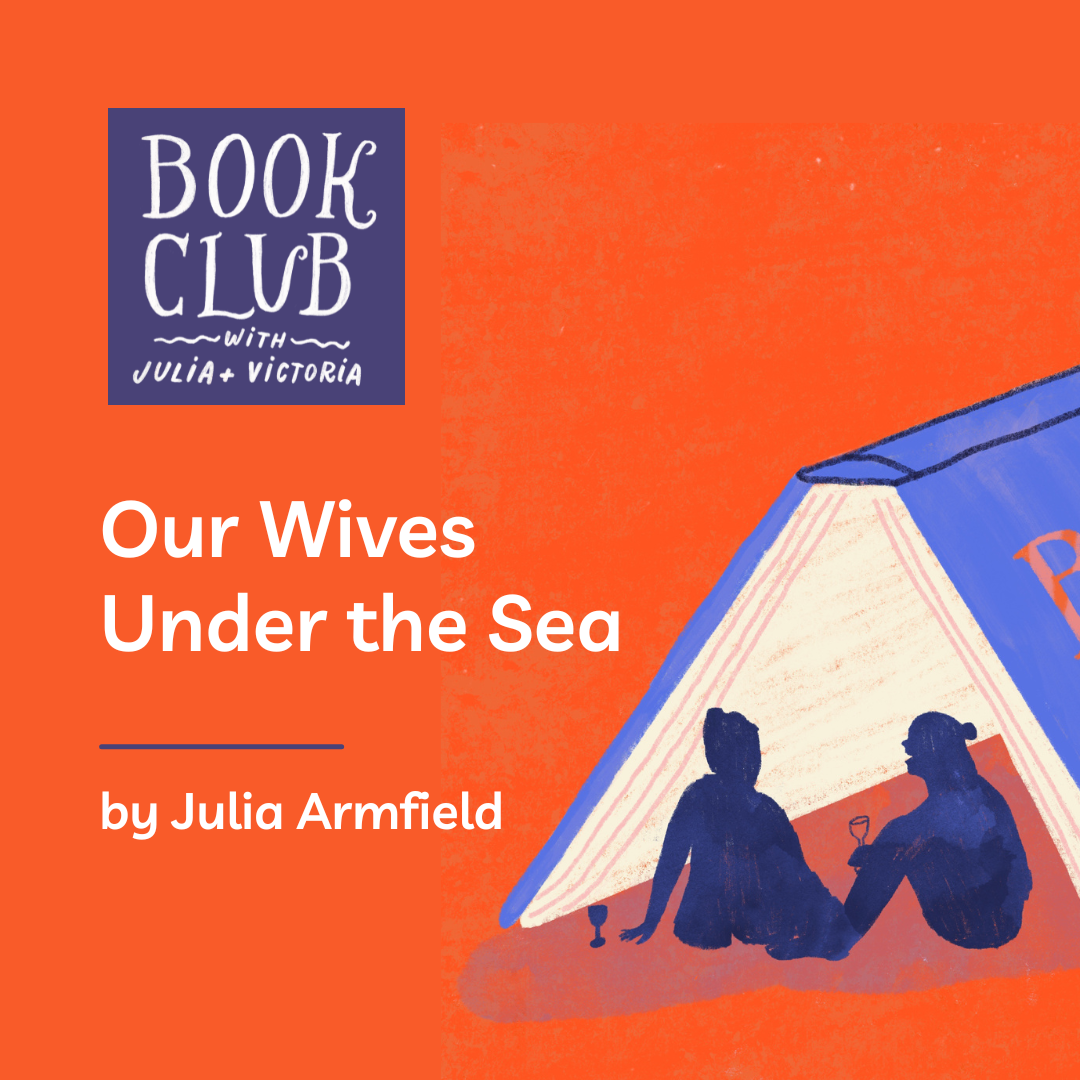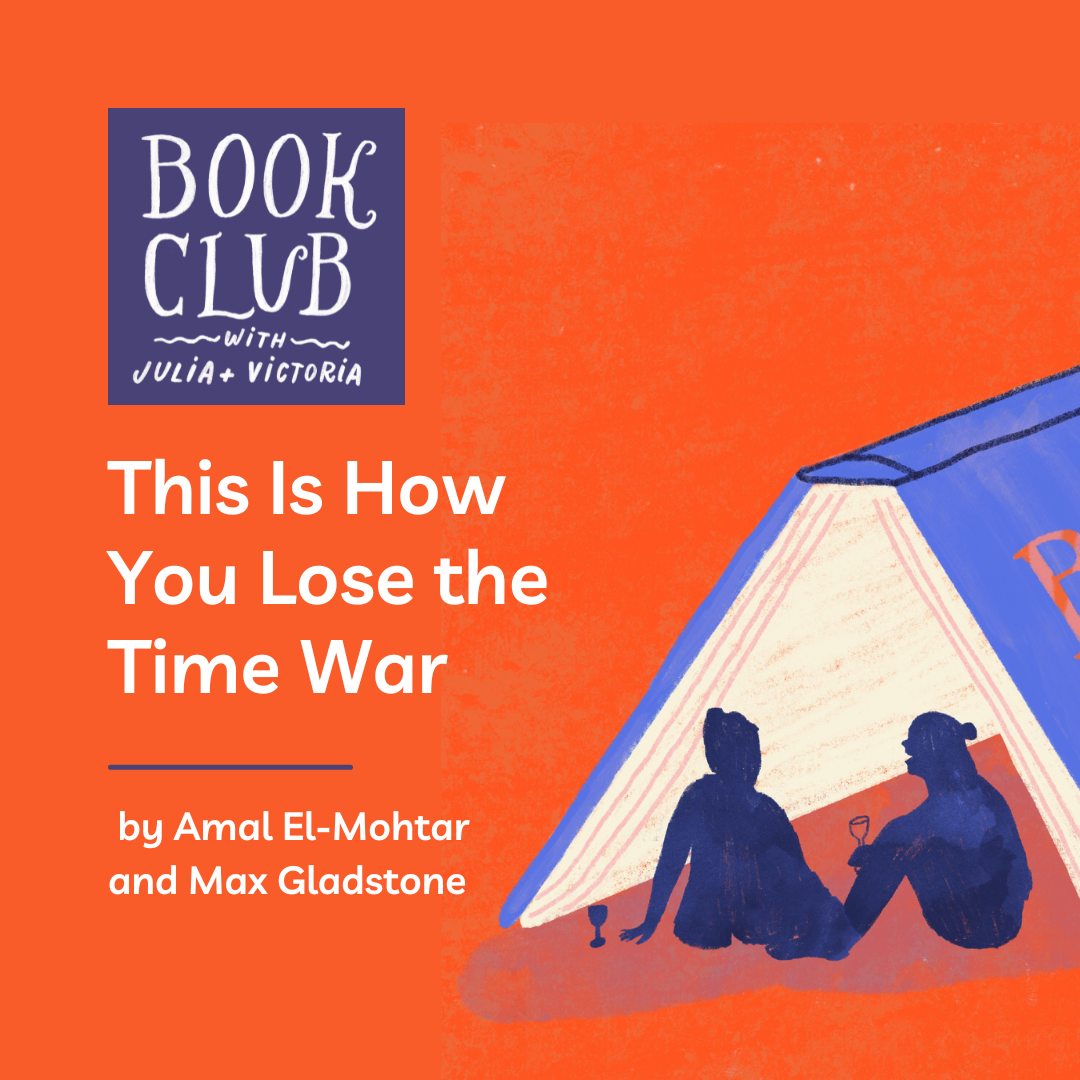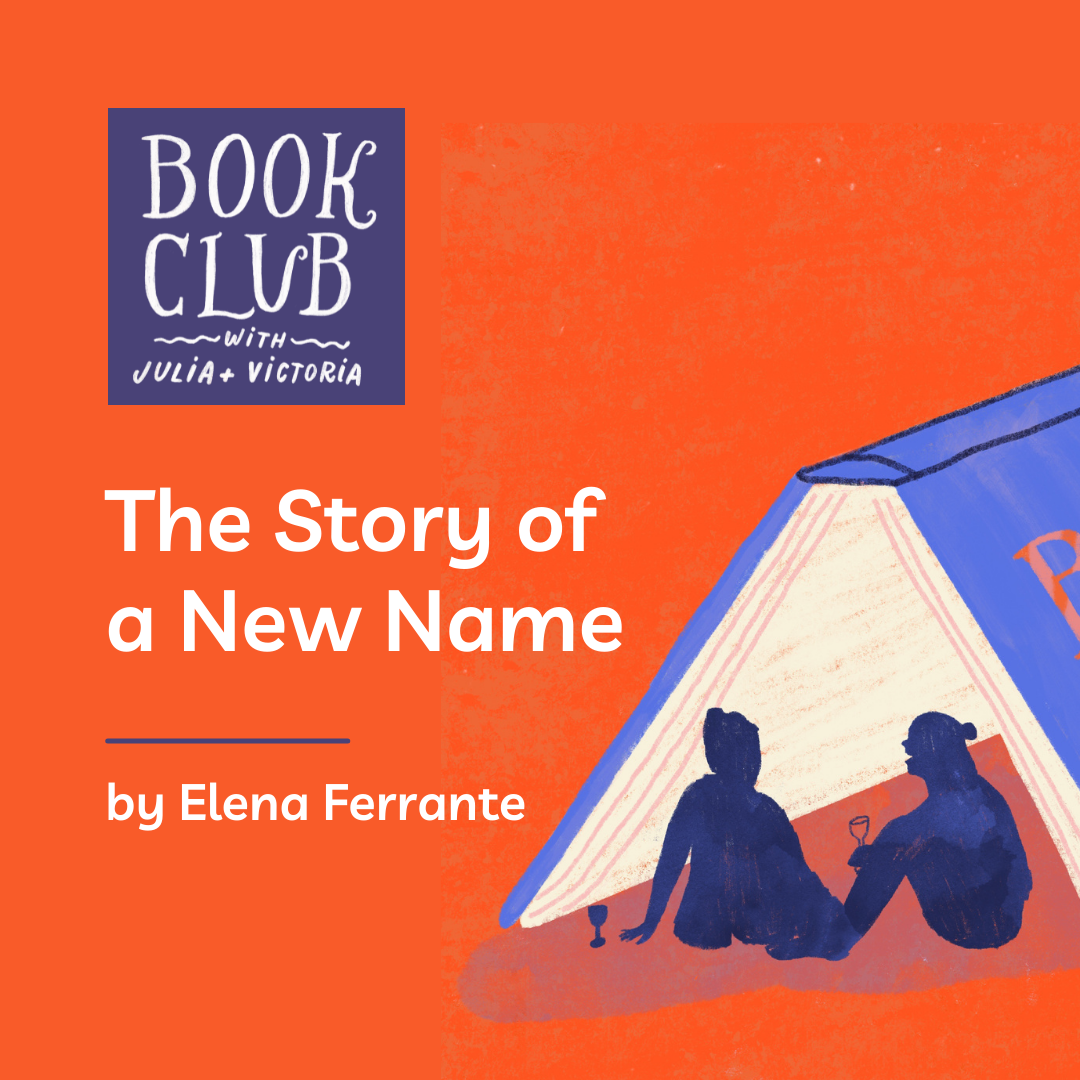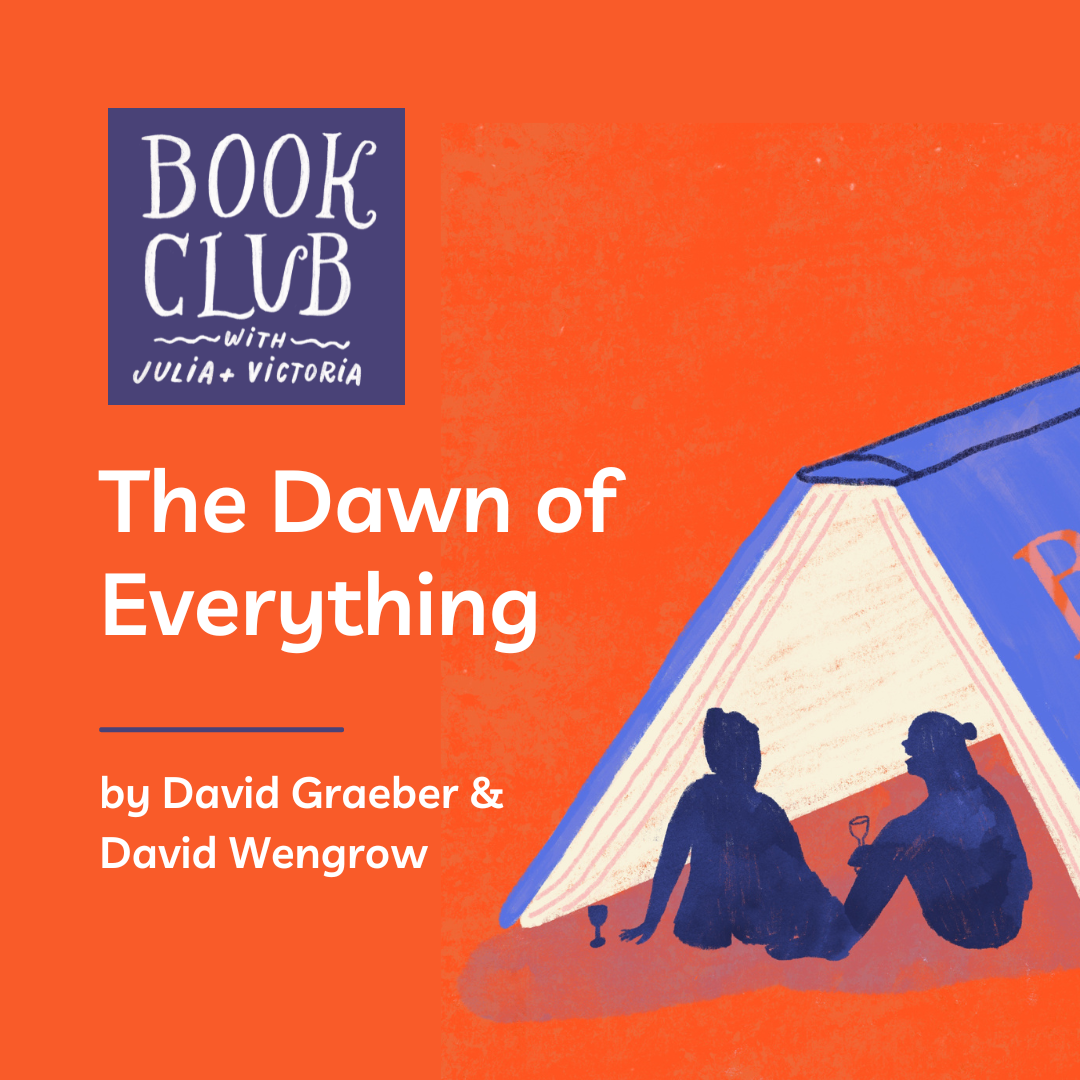Where to Start Listening
There’s no wrong way to jump into our podcast feed: You can start with the newest episode, or scroll till you find a book you’ve already read, or chuckle as you read our witty copy and be convinced to let us into your ear balls. All great options.
But if you’re feeling overwhelmed and looking for a more personalized recommendation, we’ve put together this handy little guide to help you find your way through our bookshelves.
Start here if…
…you have formative memories of your high school English teacher.
Exploring anarchism, feminism, and the Cold War, Julia and Victoria unpack the context of The Dispossessed by the brilliant and sassy Ursula K. Le Guin. Join for the sci-fi, stay for Barbenheimer, alien Jesus, and a confusion of Ursulas. Also Julia has minor microphone problems. (She sincerely apologizes).
Julia and Victoria get into their feels with A Thousand Mornings, a book of poetry written by Mary Oliver, and chosen by their special guest Samira Sakbay.
Julia and Victoria try to solve the Who, the How, and the Why of Interior Chinatown by Charles Yu and may or may not reach a verdict. Victoria invents a new grammatical tense.
Julia and Victoria enter a dream state to talk about Beloved by Toni Morrison and its place within both the horror genre and American history.
Julia and Victoria try to figure out why their 2011 Harper Teen copy of Jane Eyre by Charlotte Bronte looks suspiciously like Twilight and why that’s interesting for the genre of Gothic literature.
Julia and Victoria take a look at the children’s classic The Giver by Lois Lowry with fresh eyes as an extended critique of whiteness and dominant culture.
…you are curious about our personal fav episodes.
Julia and Victoria learn what the word “flannel” means in British English and formulate their own theories about what happened to a stranded deep-sea researcher in the devastatingly beautiful novel Our Wives Under the Sea by Julia Armfield.
Julia is truly bamboozled, Victoria embraces that she is a vampire girlie, and they both dig into the context of Joseph Sheridan LeFanu’s Carmilla, edited with commentary by the absolute legend Carmen Maria Machado.
Julia and Victoria needed to scream about how much they loved crying over the romantic, angsty sci-fi novella This Is How You Lose the Time War by Amal El-Mohtar and Max Gladstone, so now it is an episode.
Julia and Victoria celebrate their 100th episode by talking about cultural definitions of magic and the complexities of power in Rebecca Roanhorse’s Black Sun.
Julia and Victoria (whose mic simply refused to cooperate this episode) dip their toes into the world of science fiction with “Story of Your Life” by Ted Chiang, and its film adaptation Arrival. This inspires them to think some big, timey-wimey thoughts about language and brains and the way our experience of time affects our views on life.
…you want to know what all the hype is about.
Julia and Victoria make their case as to why Babel by R. F. Kuang should be two (or three?) books. Point #1: It is amazing, and the people want more.
Julia and Victoria talk inevitability and unreliable narrators in The Story of the Lost Child and celebrate finishing Elena Ferrante’s iconic Neapolitan series. They try and fail to solve the unsolvable ending.
Julia and Victoria discuss book three in Elena Ferrante’s Neapolitan series, Those Who Leave and Those Who Stay, and explore the complications of living life according to your principles.
This is the last podcast episode of Season 9! We’ll be back in late May with more books and more obsessions. In the meantime, you can watch our book-to-TV reviews of Pachinko on Buy Me a Coffee.
Julia and Victoria discuss when they figured out the twist in The Fifth Season by N. K. Jemisin (at very different points in the book) and all the ways Jemisin expertly builds the world of the Stillness (through language, mythology, science, and culture). Also, Julia listened to this while she had a migraine, and now she’s obsessed with the audiobook reader.
Well over a year later, Julia and Victoria face their fears of long page counts and return to Elena Ferrante’s Neapolitan series with The Story of a New Name. They discuss the complexity and ingenuity of Ferrante’s depiction of womanhood, and how much they hate Nino Sarratorre.
Julia and Victoria contemplate mortality (and whether they could be buried under paper trees to become books in their next lives) with the help of the darkly comic memoir Smoke Gets In Your Eyes by Katelyn Doughty about a young woman trying to become a mortician and revolutionize the way Americans handle death.
Julia and Victoria endeavor to answer some fundamental questions about Untamed by Glennan Doyle, such as “What is this book exactly?” and “What’s it about?” and “Who is actually it for?” Unclear whether they succeed.
…you like to think deeply about things for fun.
Julia and Victoria are surprised to find hope and belonging in a new story of humanity with The Dawn of Everything by “the Davids” (Graeber and Wengrow), the anthropological clapback to Sapiens by Harrari.
Julia and Victoria meet up with their internet friend Sofía Syntaxx (of the ANGR podcast) to talk about how much they loved Braiding Sweetgrass by Robin Wall Kimmerer, swap stories, compare languages and knowledge systems, and laugh about all the things American scientists “discovered” which indigenous peoples have known for thousands of years. A good deal of swearing is involved, but like, in a fun way.
Julia and Victoria reflect on their winding work histories and the rise of pointless labor with the help of Bullshit Jobs by anthropologist David Graeber. They get very excited about it.
Julia and Victoria discuss the core points of Unmasking Autism by Devon Price: What is masking, and how can we unmask our own lives to build a better world together? Julia drops her neurodivergent-friendly skin care routine.
How I Became a Tree by Sumana Roy really spoke to Julia and Victoria’s exhaustion with productivity, their love for their houseplants, and their ever-growing need to run away to the woods. Plus: a few tips and suggestions for reading books outside of your cultural context.



